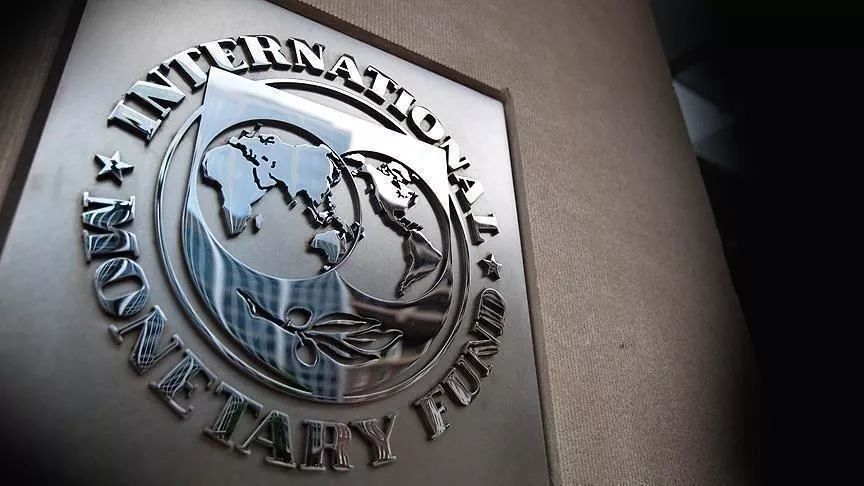IMF forecast 3% contraction in global economy this year
World Economic Outlook’ says breathtaking downgrade will be followed by 5.8% growth in 2021
WASHINGTON: The International Monetary Fund (IMF) on Tuesday painted a grim picture of the global economy, which would take a heavy beating from the coronavirus outbreak this year with its impact far worse than the Great Recession over a decade ago.In its biannually ‘World Economic Outlook’ prepared for this week’s spring meetings of the 189-nation IMF and the World Bank, the Fund hoped for a big turnaround next year but all depended on what path the virus takes and the how effective are the stimulus packages announced by many governments.
Strict measures to contain the spread of Covid-19 pandemic such as lockdowns of cities, even the whole countries in some instances, shutdown of businesses, social distancing and travel restrictions, have contributed immensely to bring economic activity to a near-standstill across much of the world.
The Outlook suggested that the world economy in 2020 would see its worst year since the Great Depression of the 1930s. It expected the global economy to shrink 3% this year — far worse than its 0.1% dip in the Great Recession year of 2009.
At the start of 2020, when the virus had just surfaced in China but had not become a threat to the entire world, the IMF had forecast a moderate global growth of 3.3% this year. But in the latest outlook, it expected 5.9% economic contractions in the US and 7.5% in the 19-country Euro zone.
IMF to consider $1.4 billion Pakistan grant on April 16
Among other major economies, Japan will suffer a contraction of 5.2% in and 6.5% in the United Kingdom. China, world’s second-biggest economy where the pandemic originated, is expected to eke out 1.2% growth this year. Worldwide trade will plummet 11% this year, the IMF predicts.
The breathtaking downgrade comes just before the spring meetings of the 189-nation IMF and its sister lending organisation, the World Bank. For the first time, these meetings, along with a gathering of finance ministers and central bankers of the world’s 20 biggest economies will be held virtually.
The IMF said Tuesday expected the economic rebound in 2021 with 5.8% growth and 8.4% growth in the international trade. However, it admitted that that prospects for the turnaround next year would be clouded by uncertainty.
It said a rebound depended on what path the virus will take; the effectiveness of policies meant to contain the outbreak and minimise the economic damage; and whether, after many months from now, people will continue to isolate themselves as a precaution against a potential resurgence of the virus.
Last week, the IMF’s managing director, Kristalina Georgieva, warned that the world was facing “the worst economic fallout since the Great Depression.” She said that emerging markets and low-income nations across Africa, Latin America and much of Asia were at especially high risk. And on Monday, the IMF approved $500 million to cancel six months of debt payments for 25 impoverished countries so they can help confront the pandemic.
The IMF noted that policymakers in many countries have devised a “swift and sizable” response to the economic crisis. The United States, for instance, has enacted three separate rescue measures, including a $2.2 trillion aid package — the largest in history.
However, IMF’s managing director, Kristalina Georgieva, has warned last week that some countries could not afford sufficiently aggressive rescue plans and “may require external support.” She had said that the IMF was prepared to commit its $1 trillion in lending capacity to support poorer nations.
The IMF and the World Bank are providing emergency funds to developing and low-income countries to strengthen their efforts to battle the virus. The countries slated to receive funds, include Pakistan, $200 million; India, $1 billion; Ghana, $1 billion; Tunisia, $745 million and Afghanistan, $100.4 million.
Other countries on the list are Senagal, Chad, DR Congo, Cambodia, Kyrgyzstan, Maldives, Mongolia, Sri Lanka, Tajikistan, Yemen, Argentina, Ecuador, Haiti, Honduras, Paraguay, Albania, Kosovo and North Macedonia.
In its Outlook, the IMF called on countries to work cooperatively to fight the pandemic. “Countries urgently need to work together to slow the spread of the virus and to develop a vaccine and therapies to counter the disease,” it said.


COMMENTS
Comments are moderated and generally will be posted if they are on-topic and not abusive.
For more information, please see our Comments FAQ